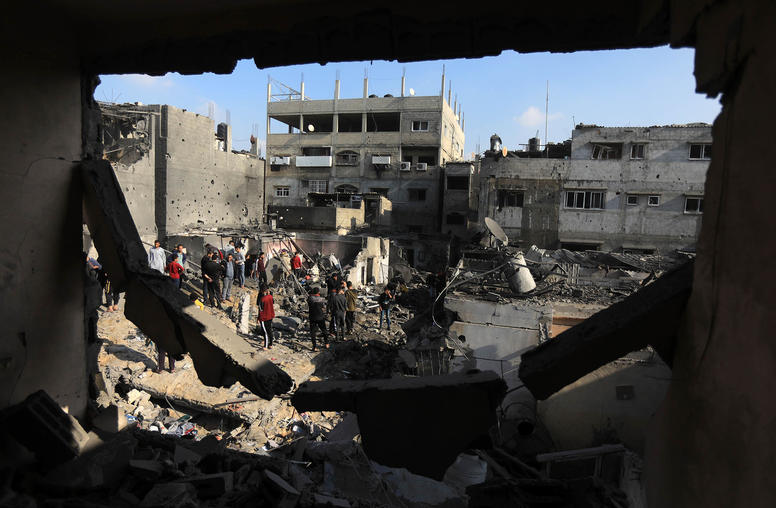Northern Ireland’s Lessons for Israeli-Palestinian Peace
Sen. George Mitchell and Experts on the International Fund for Ireland. Can it be a model?
Read the Event CoverageWhen Northern Ireland’s combatants finally made peace in the 1990s, they did so on a broad foundation of grassroots reconciliation and economic development work, built over more than a decade by the International Fund for Ireland. On March 13, the U.S. Institute of Peace and the Embassy of Ireland gathered former government officials, peacebuilding practitioners and scholars to examine what worked in advancing peace in Northern Ireland—and what lessons might be applied to the difficult process of peacemaking and peacebuilding between Israelis and Palestinians. Former Senator George Mitchell, who served as an envoy in both peace processes, was the keynote speaker.
The International Fund for Ireland, an independent organization founded by the British and Irish governments, has worked since 1986 to help heal Northern Ireland and bordering areas of Ireland during and after 40-plus years of sectarian violence. With support from the United States, the European Union and other countries, the fund promotes economic and community development, dialogue and cooperation across sectarian lines of animosity.
Today efforts are underway to promote a similar strategy for the Israeli-Palestinian conflict, which often seems as intractable as Northern Ireland’s violence once did. While scores of peacebuilding NGOs have been working over two decades to build cooperation among Israelis and Palestinians, they have done so with no broad model for steady funding and coordination. Yet experience shows that healing any conflict requires consistent, robust, long-term, and coordinated effort.
Can the Fund’s experience offer new hope for eventually healing the Israeli-Palestinian conflict? Our panelists, who have experience in both arenas, identified the lessons from the International Fund and the possibilities for Palestinians and Israelis exhausted by violence.
Agenda:
Nancy Lindborg, Opening Remarks
President, United States Institute of Peace
The Honorable George Mitchell, Keynote Address
Former United States Senator (D-Maine)
Panel I: International Fund for Ireland: Lessons Learned, 1:30pm - 3:00pm
Mr. Michael Lonergan, Moderator
Deputy Head of Mission, Embassy of Ireland
Ms. Carol Cunningham
Unheard Voices
Ms. Melanie Greenberg
Alliance for Peacebuilding
Professor Brandon Hamber
John Hume and Thomas P. O'Neill Chair in Peace, Ulster University
Dr. Adrian Johnston
International Fund for Ireland
Panel II: Implications for Israeli-Palestinian Peacebuilding, 3:30pm - 5:00pm
Mr. Rami Dajani, Moderator
United States Institute of Peace
Mr. Joel Braunold
Alliance for Middle East Peace
Ms. Lucy Kurtzer-Ellenbogen
United States Institute of Peace
Father Josh Thomas
Kids4Peace
Dr. Sarah Yerkes
Brookings Institution



